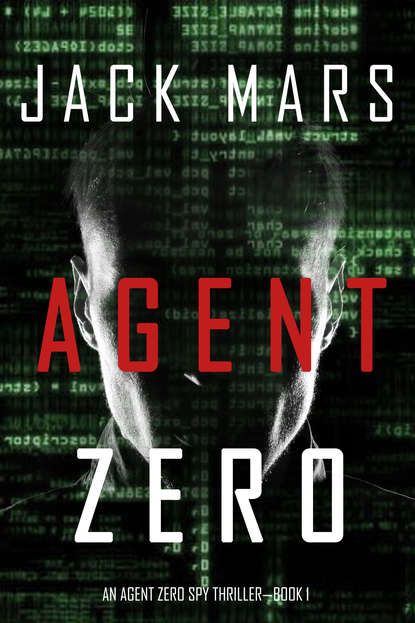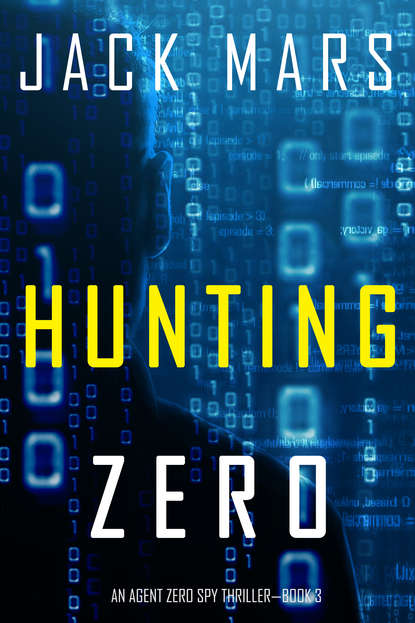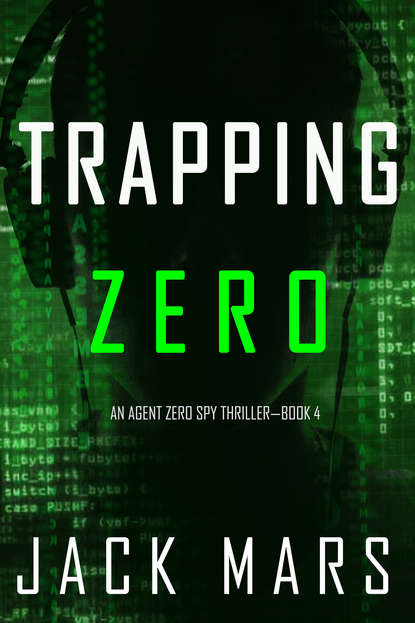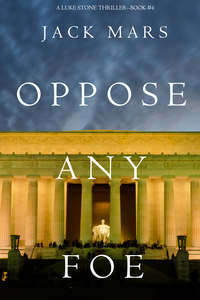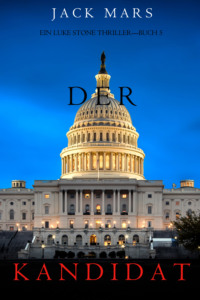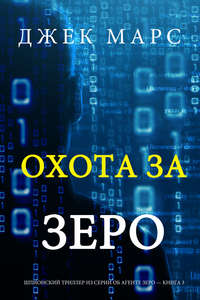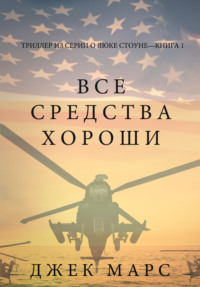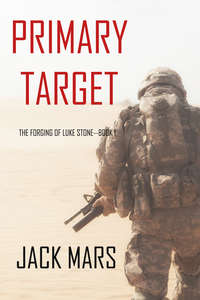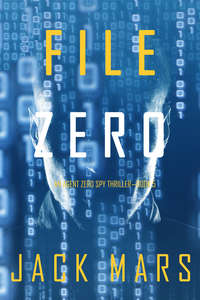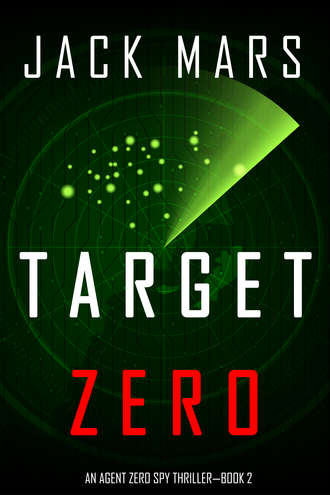
Полная версия
Target Zero
She bit him gently on the earlobe. “Tell me.”
Adrian pointed at his screen, displayed on which was the cyclical double-stranded RNA structure of variola major—the virus known to most as smallpox. “This strain from Siberia is… it is incredible. I’ve never seen anything quite like it. By my calculations, the virulence of it would be staggering. I am convinced that the only thing that might have stopped it from eradicating early humanity thousands of years ago was the glacial period.”
“A new Deluge.” Claudette moaned a soft sigh in his ear. “How long until it is ready?”
“I must mutate the strain, while still maintaining the stability and virility,” he explained. “No simple task, but a necessary one. The WHO obtained samples of this same virus five months ago; there is no doubt that a vaccine is being developed, if one hasn’t been already. Our strain must be unique enough that their vaccines will be ineffective.” The process was known as lethal mutagenesis, manipulating the RNA of the samples he had acquired in Siberia to increase virulence and reduce the incubation period. At his calculations, Adrian suspected the mortality rate of the mutated variola major virus could reach as high as seventy-eight percent—nearly three times that of the naturally occurring smallpox that had been eradicated by the World Health Organization in 1980.
Upon returning from Siberia, Adrian had first visited Stockholm and used the deceased student Renault’s ID to access their facilities, where he ensured that the samples were inactive while he worked. But he could not linger under someone else’s identity, so he stole the necessary equipment and returned to Marseille. He set up his laboratory in the unused basement of a tailor’s shop three blocks from their flat; the kindly old tailor believed that Adrian was a geneticist, researching human DNA and nothing more, and Adrian kept the door secured with a padlock when he was not present.
“Imam Khalil will be pleased,” Claudette breathed in his ear.
“Yes,” Adrian agreed quietly. “He will be pleased.”
Most women would likely not be terribly keen to find their significant other working with a substance as volatile as a highly virulent strain of smallpox—but Claudette was not most women. She was petite, standing only five-foot-four to Adrian’s six-foot figure. Her hair was a fiery red and her eyes as deep green as the densest jungle, suggesting a certain irascibility.
They had met only the year prior, when Adrian was at his lowest. He had just been expelled from Stockholm University for attempting to obtain samples of a rare enterovirus; the same virus that had taken his mother’s life only weeks earlier. At the time, Adrian had been determined to develop a cure—obsessed, even—so that no one else would suffer as she did. But he was discovered by university faculty and summarily dismissed.
Claudette found him in an alley, lying in a puddle of his own desolation and vomit, half-unconscious from drink. She took him home, cleaned him up, and fed him water. The next morning Adrian had awoken to find a beautiful woman sitting at his bedside, smiling upon him as she said, “I know exactly what you need.”
He swiveled on his kitchen stool to face her and ran his hands up and down her back. Even sitting he was nearly her height. “It is interesting you mention the Deluge,” he noted. “You know, there are scholars who say that if the Great Flood truly did occur, it would have been approximately seven to eight thousand years ago… nearly the same epoch as this strain. Perhaps the Flood was a metaphor, and it was this virus that cleansed the world of its wicked.”
Claudette laughed at him. “Your constant endeavors to blend science and spirituality are not lost on me.” She took his face gently in her hands and kissed his forehead. “But you still do not understand that sometimes faith is all you need.”
Faith is all you need. That was what she had prescribed to him the year before, when he awoke from his drunken stupor. She had taken him in and allowed him to stay in her flat, the very same one that they occupied still. Adrian was not a believer in love at first sight before Claudette, but she came to hold many influences on his way of thinking. Over the course of some months, she introduced him to the tenets of Imam Khalil, an Islamic holy man from Syria. Khalil considered himself neither Sunni nor Shiite, but simply a devotee of God—even to the point that he allowed his fairly small sect of followers to call Him by whatever name they chose, for Khalil believed that each individual’s relationship with their creator was strictly personal. For Khalil, that god’s name was Allah.
“I want you to come to bed,” Claudette told him, stroking his cheek with the back of her hand. “You need your rest. But first… do you have the sample prepared?”
“The sample.” Adrian nodded. “Yes. I have it.”
There was but a single, tiny vial, barely larger than a thumbnail, of the active virus, hermetically sealed in glass and nestled between two cubes of foam, those inside a stainless steel biohazard container. The box itself was sitting, quite conspicuously, on the countertop of their kitchen.
“Good,” Claudette purred. “Because we are expecting visitors.”
“Tonight?” Adrian’s hands fell away from the small of her back. He hadn’t expected it to happen so soon. “At this hour?” It was nearly two o’clock in the morning.
“Any moment,” she said. “We made a promise, my love, and we must keep it.”
“Yes,” Adrian murmured. She was right, as always. Vows must not be broken. “Of course.”
A brusque, heavy rapping on the door of their flat startled them both.
Claudette padded quickly to the door, leaving the chain lock on and opening it only two inches. Adrian followed, peering over her shoulder to see the pair of men on the other side. Neither looked friendly. He did not know their names, and had come to think of them only as “the Arabs”—though, for all he knew, they could have been Kurds or even Turkmen.
One of them spoke quickly to Claudette in Arabic. Adrian did not understand; his Arabic was rudimentary at best, limited to a handful of phrases that Claudette had taught him, but she nodded once, slid the chain aside, and granted them entry.
Both were fairly young, their mid-thirties or so, and sported short black beards over their mocha-tinted cheeks. They wore European clothing, jeans and T-shirts and light jackets against the chilly night air; Imam Khalil did not require any religious garb or coverings of his followers. In fact, ever since their displacement from Syria, he preferred that his people blend in whenever possible—for reasons that were obvious to Adrian, considering what the two men were there to procure.
“Cheval.” One of the Syrian men nodded to Adrian, almost reverently. “Forward? Tell us.” He spoke in extremely broken French.
“Forward?” Adrian repeated, confused.
“He means to ask for your progress,” Claudette said gently.
Adrian smirked. “His French is terrible.”
“So is your Arabic,” Claudette retorted.
Fair point, Adrian thought. “Tell him that the process takes time. It is meticulous, and requires patience. But the work is going well.”
Claudette relayed the message in Arabic, and the pair of Arabs nodded their approval.
“Small piece?” the second man asked. It seemed they were intent to practice their French on him.
“They’ve come for the sample,” Claudette told Adrian, though he had gathered that much from context. “Will you retrieve it?” It was clear to him that Claudette had no interest in touching the biohazard container, sealed or not.
Adrian nodded, but he did not move. “Ask them why Khalil did not come himself.”
Claudette bit her lip and touched him gently on the arm. “Darling,” she said quietly, “I am sure he is busy elsewhere—”
“What could be more important than this?” Adrian insisted. He had fully expected the Imam to show up.
Claudette asked the question in Arabic. The pair of Syrians frowned and glanced at each other before responding.
“They tell me that he is visiting the infirm tonight,” Claudette told Adrian in French, “praying for their release from this physical world.”
Adrian’s mind flashed to a memory of his mother, only days before her death, lying on the bed with her eyes open but unaware. She was barely conscious from the medication; without it she would have been in constant torment, yet with it she was practically comatose. In the weeks leading up to her departure, she had no concept of the world around her. He had prayed often for her recovery, there at her bedside, though as she neared the end his prayers changed and he found himself wishing her only a quick, painless death.
“What will he do with it?” Adrian asked. “The sample.”
“He will ensure that your mutation works,” Claudette said simply. “You know this.”
“Yes, but…” Adrian paused. He knew it was not his place to question the Imam’s intent, but suddenly he had a powerful urge to know. “Will he test it privately? Somewhere remote? It is important not to show our hand too soon. The rest of the batch is not ready…”
Claudette said something quickly to the pair of Syrian men, and then she took Adrian by the hand and led him to the kitchen. “My love,” she said quietly, “you are having doubts. Tell me.”
Adrian sighed. “Yes,” he admitted. “This is only a very tiny sample, not quite as stable as the others will be. What if it does not work?”
“It will.” Claudette wrapped her arms around him. “I have every confidence in you, as does Imam Khalil. You have been gifted this opportunity. You are blessed, Adrian.”
You are blessed. Those were the same words Khalil had used when they met. Three months earlier, Claudette had taken Adrian on a trip to Greece. Khalil, like so many Syrians, was a refugee—but not a political one, nor a byproduct of the war-torn nation. He was a religious refugee, chased out by Sunnis and Shiites alike for his idealistic notions. Khalil’s brand of spirituality was an amalgamation of Islamic tenets and some of the esoteric philosophical influences from Druze, such as truthfulness and transmigration of the soul.
Adrian had met the holy man in a hotel in Athens. Imam Khalil was a gentle man with a pleasant smile, wearing a brown suit with his dark hair and beard combed and neat. The young Frenchman was mildly taken aback when, upon meeting for the first time, the Imam asked Adrian to pray with him. Together they sat upon a carpet, facing Mecca, and prayed silently. There was a calmness that hung in the air around the Imam like an aura, a placidity that Adrian had not experienced since being a young boy in his then-healthy mother’s arms.
After prayer, the two men smoked from a glass hookah and drank tea while Khalil spoke of his ideology. They discussed the importance of being true to oneself; Khalil believed that the only way for humanity to absolve their sins was absolute truthfulness, which would allow the soul to reincarnate as a pure being. He asked many questions of Adrian, about science and spirituality alike. He asked about Adrian’s mother, and promised him that somewhere on this earth she had been born anew, pure and beautiful and healthy. The young Frenchman took great solace in it.
Khalil then spoke of Imam Mahdi, the Redeemer and the last of the Imam, the holy men. Mahdi would be the one who would bring about the Day of Judgment and rid the world of evil. Khalil believed that this would occur very soon, and after the Mahdi’s redemption would come utopia; every being in the universe would be flawless, genuine, and untainted.
For several hours the two men sat together, well into the night, and when Adrian’s head was as foggy as the thick, smoky air that swirled around them he finally asked the question that had been on his mind.
“Is it you, Khalil?” he asked the holy man. “Are you the Mahdi?”
Imam Kahlil had smiled wide at that. He took Adrian’s hand in his own and said gently, “No, my son. You are. You are blessed. I can see it as clearly as I see your face.”
I am blessed. In the kitchen of their Marseille flat, Adrian pressed his lips to Claudette’s forehead. She was right; they had made a promise to Khalil and it must be kept. He retrieved the steel biohazard box from the countertop and carried it to the waiting Arabs. He unclasped the lid and lifted the top half of the foam cube to show them the tiny, hermetically sealed glass vial nestled inside.
There did not appear to be anything in the vial—which was part of the nature of it being one of the most dangerous substances the world over.
“Darling,” Adrian said as he replaced the foam and clasped the lid firmly again. “I need you to tell them, in no uncertain terms, that under no circumstances whatsoever should they touch this vial. It must be handled with the utmost care.”
Claudette relayed the message in Arabic. Suddenly the Syrian man holding the box appeared far less comfortable than a moment earlier. The other man nodded his thanks to Adrian and murmured a phrase in Arabic, one that Adrian understood—“Allah is with you, peace be upon you”—and without another word, the two men left the flat.
Once they were gone, Claudette twisted the deadbolt and put the chain back on, and then turned to her lover with a dreamy, satisfied expression on her lips.
Adrian, however, stood rooted to the spot, his face dour.
“My love?” she said cautiously.
“What have I just done?” he murmured. He already knew the answer; he had put a deadly virus in the hands of not Imam Khalil, but two strangers. “What if they do not deliver it? What if they drop it, or open it, or—”
“My love.” Claudette slid her arms around his waist and pressed her head to his chest. “They are followers of the Imam. They will exercise caution and get it to where it needs to be. Have faith. You have taken the first step towards changing the world for the better. You are the Mahdi. Do not forget that.”
“Yes,” he said softly. “Of course. You are right, as always. And I must finish.” If his mutation did not work as it should, or if he did not produce the completed batch, he had no doubt that he would be a failure not only in the eyes of Khalil, but in Claudette’s as well. Without her he would crumble. He needed her as he needed air, food, or sunlight.
Even so, he could not help but wonder what they would do with the sample—if Imam Khalil would test it privately, at a remote location, or if it would be released publicly.
But he would find out soon enough.
CHAPTER SIX
“Dad, you don’t need to walk me to the door every time,” Maya griped as they crossed Dahlgren Quad toward Healy Hall on the Georgetown campus.
“I know I don’t have to,” Reid said. “I want to. What, are you ashamed to be seen with your dad?”
“It’s not that,” Maya muttered. The ride over had been quiet, Maya staring pensively out the window while Reid tried to think of something to talk about but fell short.
Maya was approaching the end of her junior year of high school, but she had already tested out of her AP classes and started taking a few courses a week at the Georgetown campus. It was a good jump toward college credit and looked great on an application—especially since Georgetown was her current top choice. Reid had insisted not only on driving Maya to the college but also walking her to her classroom.
The night prior, when Maria had been forced to suddenly cut their date short, Reid had hurried home to his girls. He was extremely disturbed by the news of Rais’s escape—his fingers had trembled against the steering wheel of his car—but he forced himself to stay calm and tried to think logically. The CIA was already in pursuit and likely Interpol as well. He knew the protocol; every airport would be watched, and roadblocks would be established on Sion’s major thoroughfares. And Rais had no allies left to turn to.
Besides, the assassin had escaped in Switzerland, more than four thousand miles away. Half a continent and an entire ocean spanned between him and Kent Steele.
Even so, he knew he would feel a lot better when he received word that Rais had been detained again. He was confident in Maria’s ability, but he wished he would have had the foresight to ask her to keep him updated as best she could.
He and Maya reached the entrance to Healy Hall and Reid lingered. “All right, I guess I’ll see you after class?”
She glanced back at him suspiciously. “You’re not going to walk me in?”
“Not today.” He had a feeling he knew why Maya was so quiet that morning. He had given her an ounce of independence the night before, but today he was right back to his usual ways. He had to remind himself that she wasn’t a little girl anymore. “Listen, I know I’ve been kind of crowding you a bit lately…”
“A bit?” Maya scoffed.
“…And I’m sorry for that. You are a capable, resourceful, and intelligent young woman. And you just want some independence. I recognize that. My overprotective nature is my problem, not yours. It’s not anything you did.”
Maya tried to hide the smirk on her face. “Did you just use the ‘it’s not you, it’s me’ line?”
He nodded. “I did, because it’s true. I wouldn’t be able to forgive myself if something happened to you and I wasn’t there.”
“But you’re not always going to be there,” she said, “no matter how hard you try to be. And I need to be able to take care of problems myself.”
“You’re right. I will try my best to back off a bit.”
She arched an eyebrow. “You promise?”
“I promise.”
“Okay.” She stretched on her tiptoes and kissed his cheek. “See you after classes.” She headed toward the door, but then had another thought. “You know, maybe I should learn how to shoot, just in case…”
He pointed a stern finger her way. “Don’t push it.”
She grinned and vanished into the hall. Reid loitered outside for a couple of minutes. God, his girls were growing up too fast. In two short years Maya would be a legal adult. Soon there would be cars, and college tuition, and… and sooner or later there would be boys. Thankfully that hadn’t happened yet.
He distracted himself by admiring the campus architecture as he headed toward Copley Hall. He wasn’t sure he would ever grow tired of walking around the university, enjoying the eighteenth- and nineteenth-century structures, many built in the Flemish Romanesque style that flourished in the European Middle Ages. It certainly helped that mid-March in Virginia was a turning point for the season, the weather coming around and rising into the fifties and even sixties on nicer days.
His role as an adjunct was typically taking on smaller classes, twenty-five to thirty students at a time and primarily history majors. He specialized in lessons on warfare, and often subbed in for Professor Hildebrandt, who was tenured and traveled frequently for a book he was writing.
Or maybe he’s secretly in the CIA, Reid mused.
“Good morning,” he said loudly as he entered the classroom. Most of his students were already there when he arrived, so he hurried to the front, set his messenger bag on the desk, and shrugged out of his tweed coat. “I’m a few minutes late, so let’s jump right in.” It felt good being in the classroom again. This was his element—at least one of them. “I’m sure someone in here can tell me: what was the most devastating event, by death toll, in European history?”
“World War Two,” someone called out immediately.
“One of the worst worldwide, to be sure,” Reid replied, “but Russia fared a lot poorer than Europe did, by the numbers. What else you got?”
“The Mongol conquest,” said a brunette girl in a ponytail.
“Another good guess, but you guys are thinking armed conflicts. What I’m thinking is less anthropogenic; more biological.”
“Black Death,” muttered a blond kid in the front row.
“Yes, that is correct, Mister.…?”
“Wright,” the kid answered.
Reid grinned. “Mr. Wright? I bet you use that as a pickup line.”
The kid smiled sheepishly and shook his head.
“Yes, Mr. Wright is right—the Black Death. The pandemic of the bubonic plague started in Central Asia, traveled down the Silk Road, was carried to Europe by rats on merchant ships, and in the fourteenth century it killed an estimate seventy-five to two hundred million people.” He paced for a moment to punctuate his point. “That’s a huge disparity, isn’t it? How could those numbers be so far spread?”
The brunette in the third row raised her hand slightly. “Because they didn’t have a census bureau seven hundred years ago?”
Reid and a few other students chuckled. “Well, sure, there’s that. But it’s also because of how quickly the plague spread. I mean, we’re talking about more than a third of Europe’s population gone inside of two years. To put it in perspective, that would be like having the entire East Coast and California wiped out.” He leaned against his desk and folded his arms. “Now I know what you’re thinking. ‘Professor Lawson, aren’t you the guy that comes in and talks about war?’ Yes, and I’m getting to that right now.
“Someone mentioned the Mongol conquest. Genghis Khan had the largest contiguous empire in history for a brief time, and his forces marched on Eastern Europe during the years of the plague in Asia. Khan is credited as one of the first to use what we now classify as biological warfare; if a city would not yield to him, his army would catapult plague-infected bodies over their ramparts, and then… they’d just have to wait a while.”
Mr. Wright, the blond kid in the front row, wrinkled his nose in disgust. “That can’t be real.”
“It is real, I assure you. Siege of Kafa, in what is now Crimea, 1346. See, we want to think that something like biological warfare is a new concept, but it is not. Before we had tanks, or drones, or missiles, or even guns in the modern sense, we, uh… they, uh…”
“Why do you have this, Reid?” she asks accusingly. Her eyes are more afraid than they are angry.
At his mention of the word “guns,” a memory suddenly flashed across his mind—the same memory as before, but clearer now. In the kitchen of their former home in Virginia. Kate had found something while cleaning dust from one of the air conditioning ducts.
A gun on the table—a small one, a silver nine-millimeter LC9. Kate gestures at it like a cursed object. “Why do you have this, Reid?”
“It’s… just for protection,” you lie.
“Protection? Do you even know how to use it? What if one of the girls had found it?”
“They wouldn’t—”
“You know how inquisitive Maya can be. Jesus, I don’t even want to know how you got it. I don’t want this thing in our house. Please, get rid of it.”
“Of course. I’m sorry, Katie.” Katie—the name you reserve for when she’s angry.
You gingerly take the gun from the table, as if you’re not sure how to handle it.
After she leaves for work you’ll have to retrieve the other eleven hidden throughout the house. Find better spots for them.
“Professor?” The blond kid, Wright, glanced at Reid in concern. “You okay?”
“Um… yeah.” Reid straightened and cleared his throat. His fingers ached; he’d gripped the edge of the desk hard when the memory struck him. “Yeah, sorry about that.”
There was no doubt now. He was certain he had lost at least one memory of Kate.
“Um… sorry, guys, but suddenly I’m not feeling so great,” he told the class. “It just kind of hit me. Let’s, uh, leave off there for today. I’ll give you some reading, and we’ll pick it up on Monday.”
His hands shook as he recited the page numbers. Sweat prickled on his brow as students filed out. The brunette girl from the third row paused by his desk. “You don’t look so good, Professor Lawson. Do you need us to call someone?”
A migraine was forming at the front of his skull, but he forced a smile that he hoped was pleasant. “No, thank you. I’ll be fine. Just need some rest.”
“Okay. Feel better, Professor.” She too left the classroom.
As soon as he was alone, he dug in the desk drawer, found some aspirin, and swallowed them with water from a bottle in his bag.
He sat in the chair and waited for his heart rate to slow. The memory hadn’t just had a mental or emotional impact on him—it had a very real physical effect as well. The thought of losing any part of Kate from his memory at all, when she had already been taken from his life, was nauseating.


